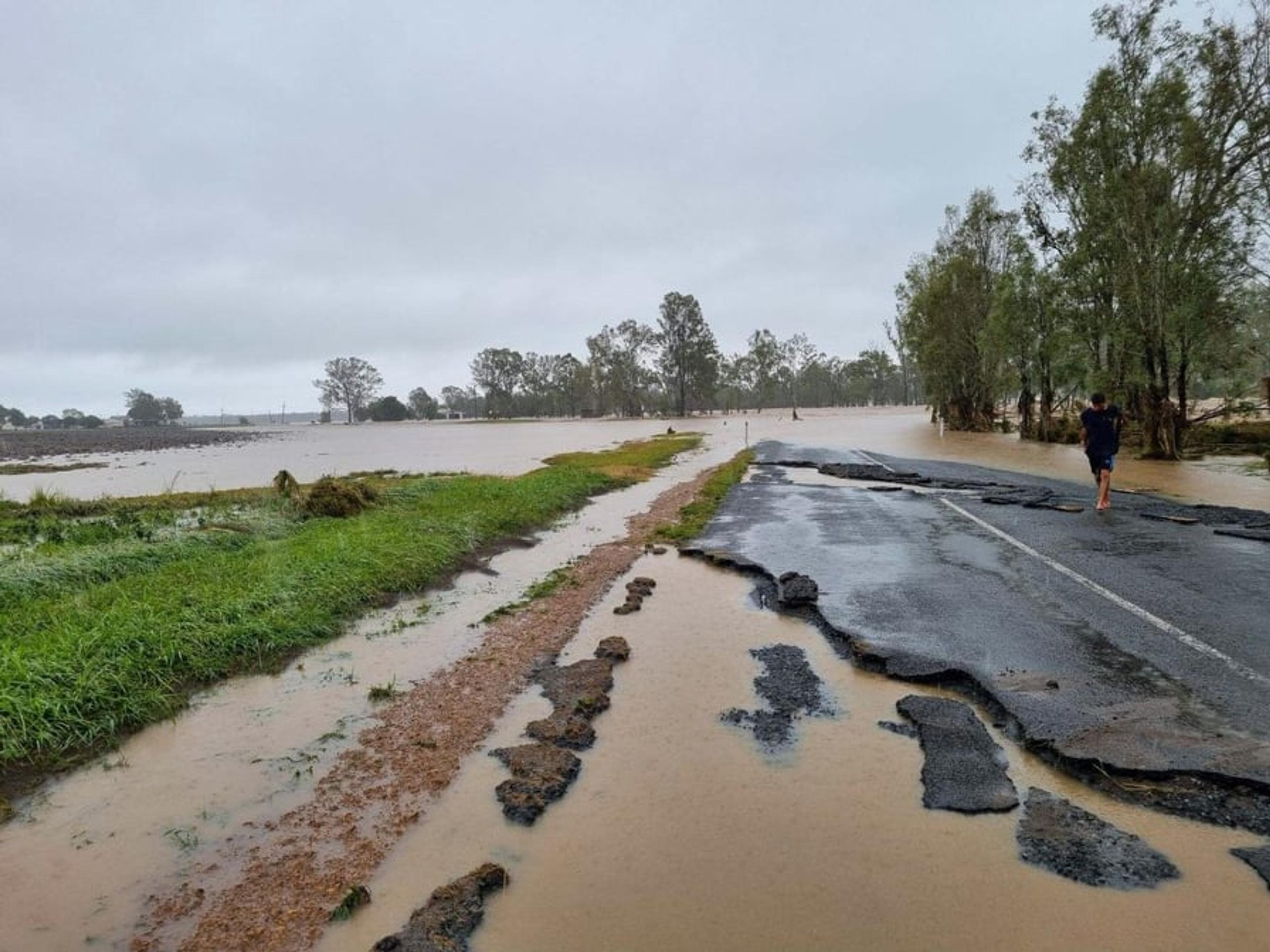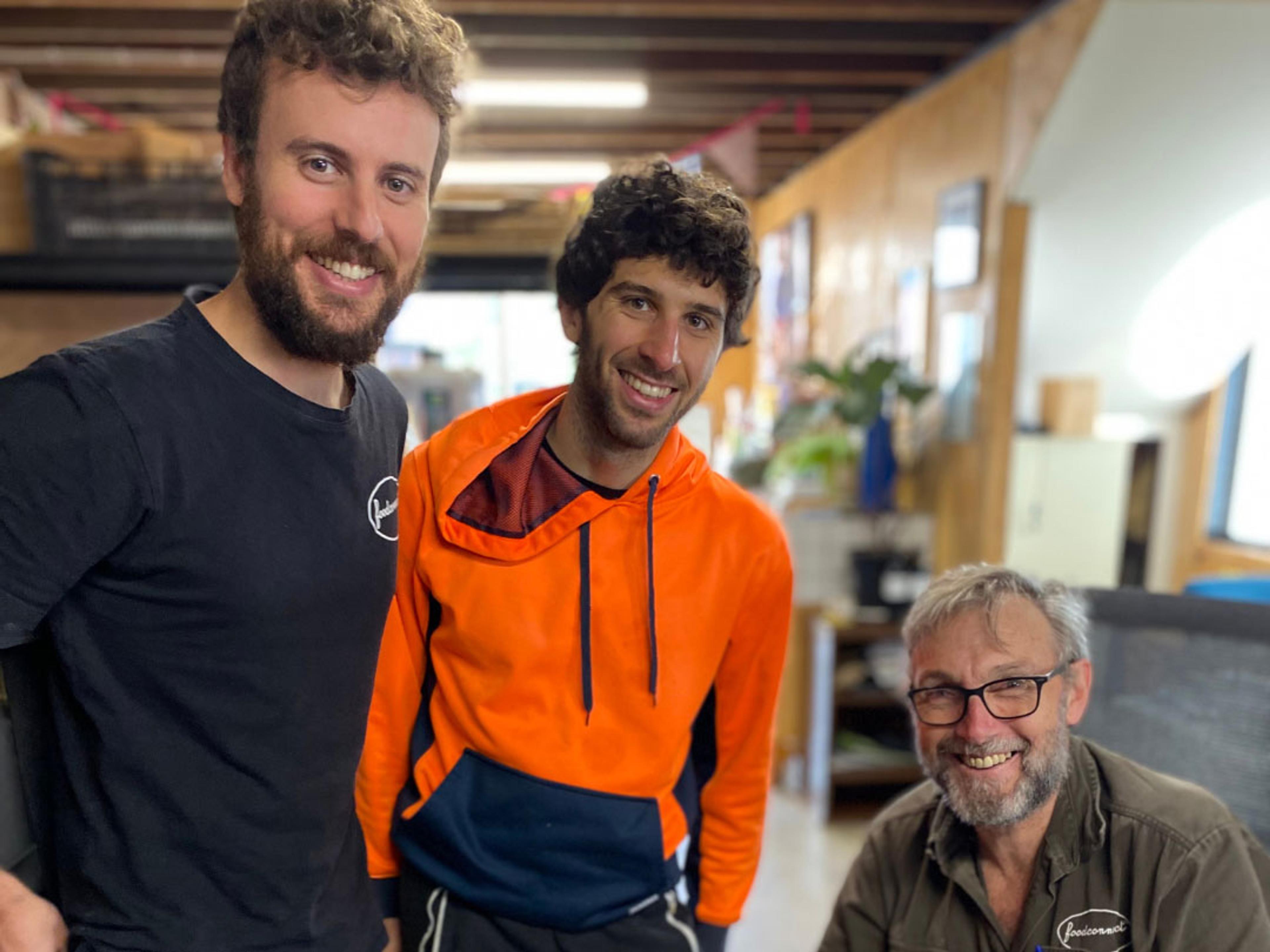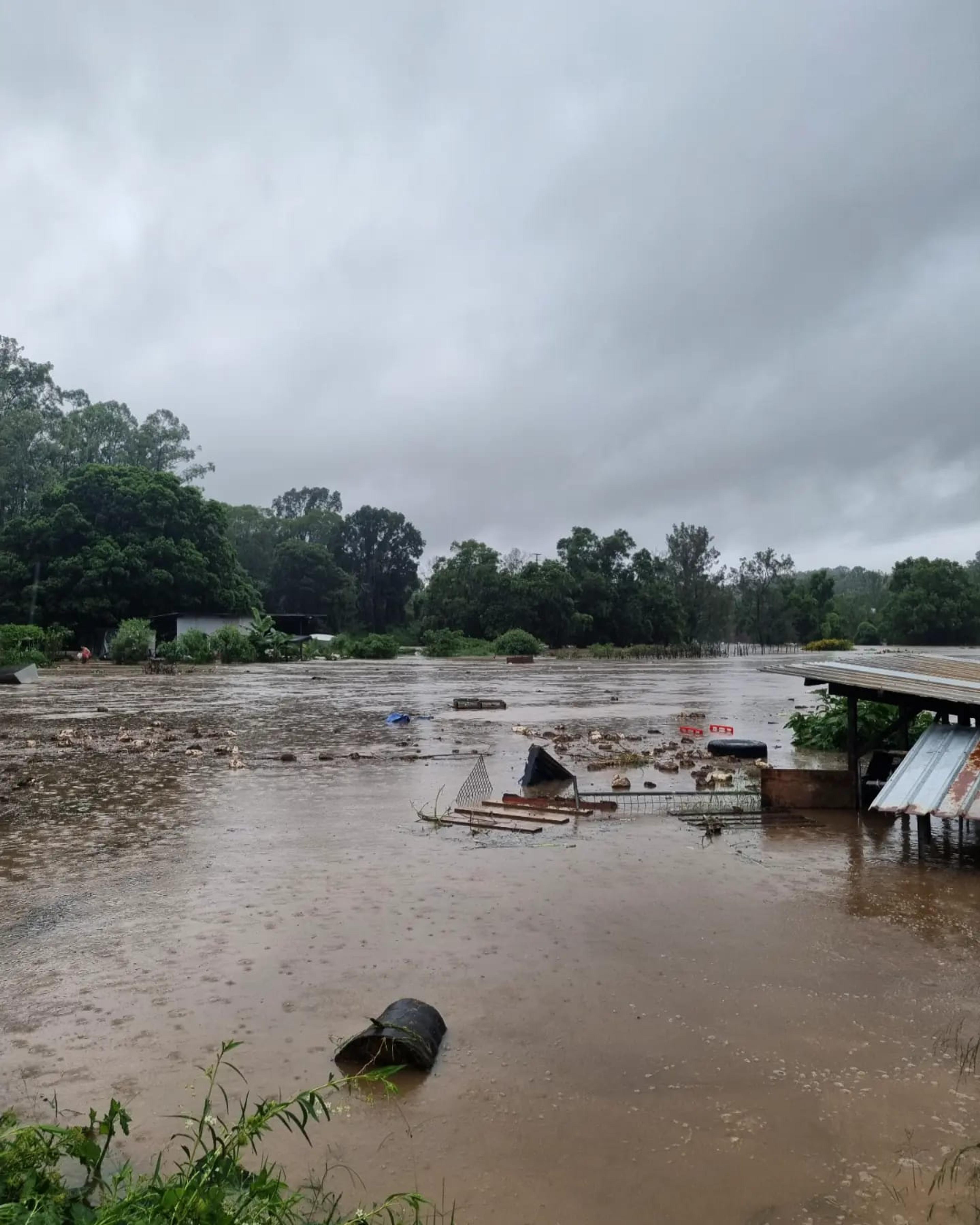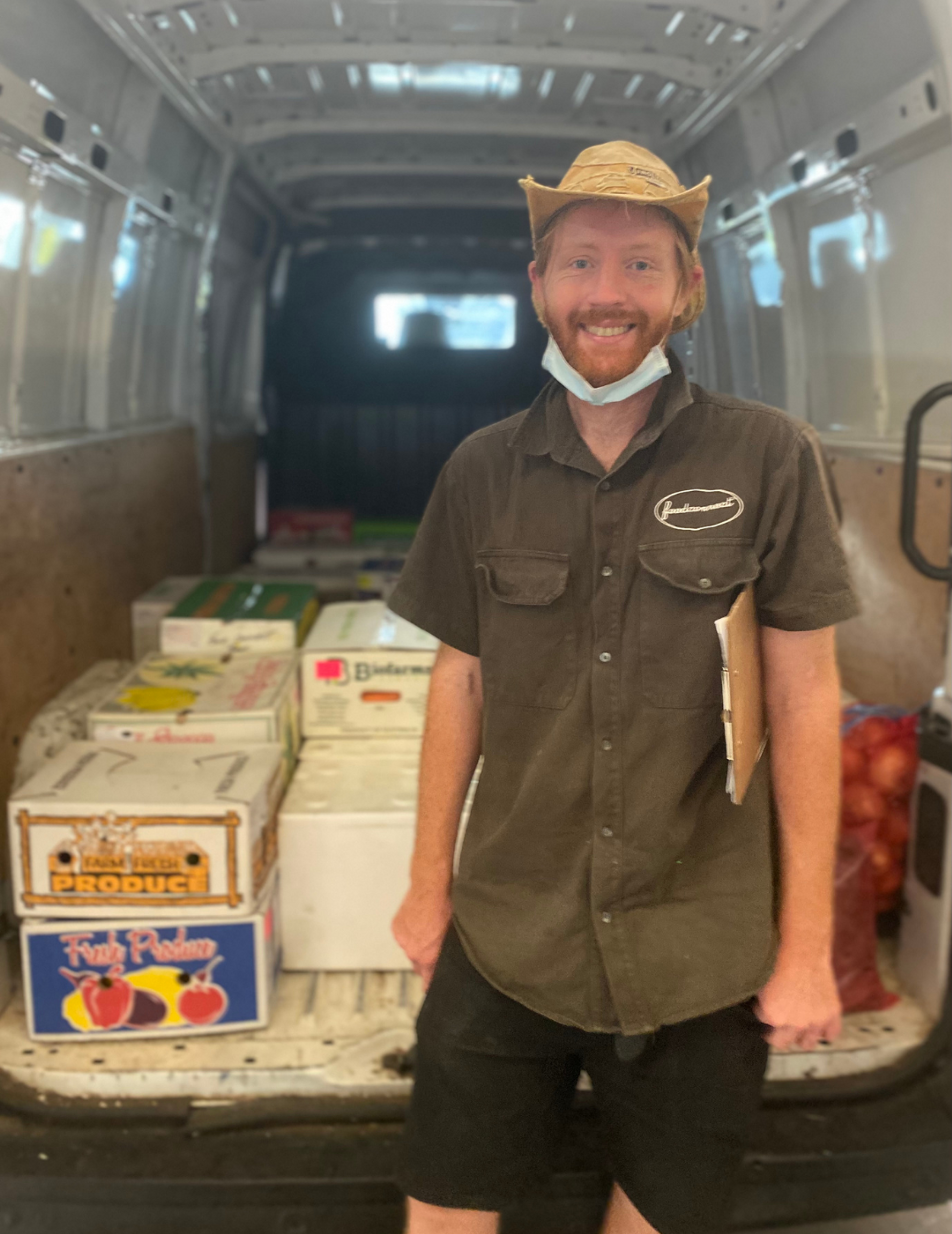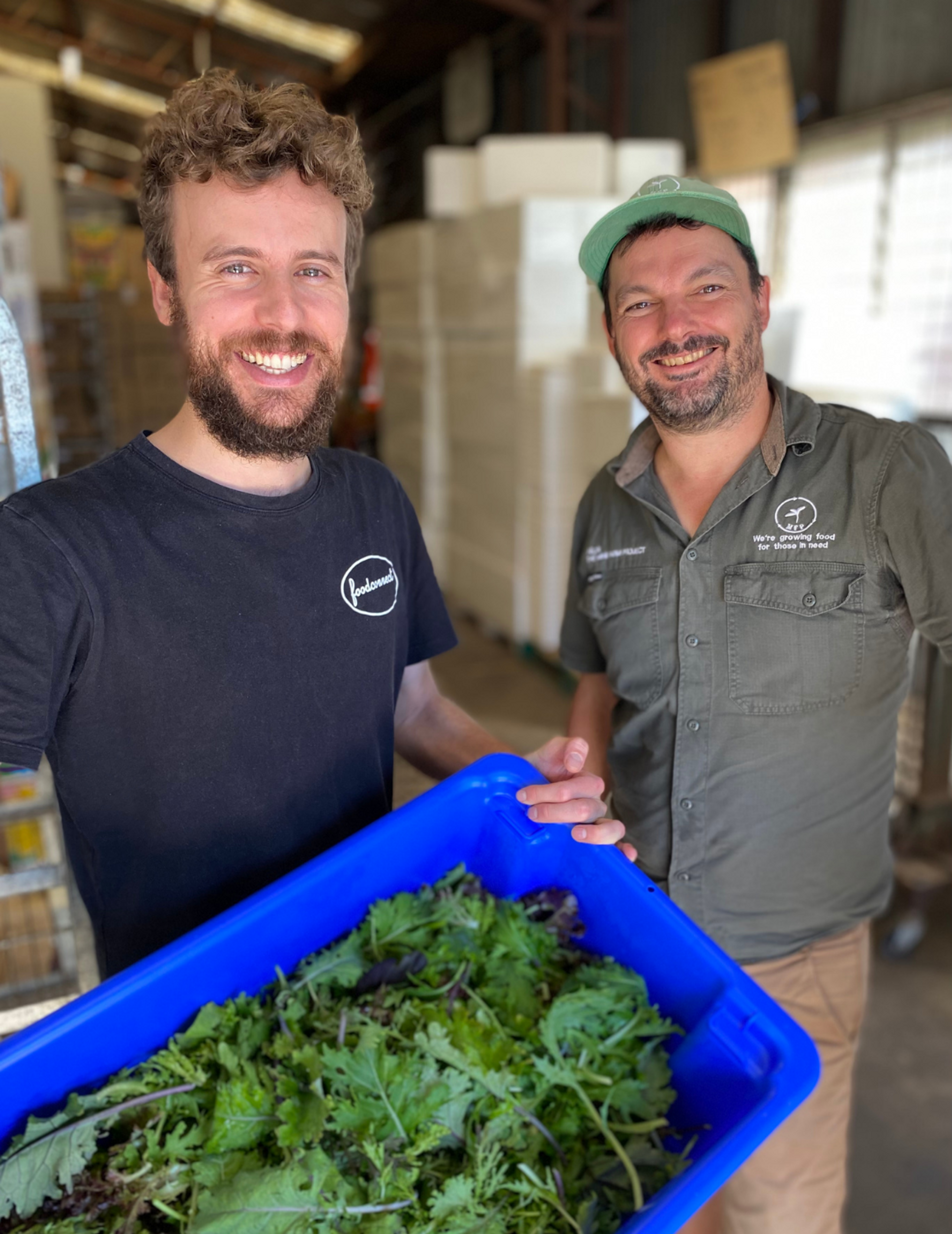Local food systems win out during flood crisis
Over February and March, 2022, unprecedented floods severely impacted communities across New South Wales and Queensland. Farms were devastated, entire crops damaged and livestock lost. Infrastructure and machinery was destroyed and widespread environmental degradation will require ongoing efforts and government support to repair. It’s heartbreaking. As farmers start the process of recovery, many are rightly wondering if it’s even worthwhile given escalating climate change and the high likelihood of another disaster in the not so distant future.
This isn’t the first climate event to wreak havoc on our shores and it surely won’t be the last. However, no matter the conditions, people are always going to need to grow, sell, buy and eat food. The big question we need to be asking is - how might we build and nurture food systems that are resilient in times of crisis?
Luckily, we don’t have to speculate because there are people on the ground who have been building climate-resilient value chains for many many years. People like the team at Food Connect, an organisation based in Brisbane. They source locally grown and produced food, box it up and sell it to customers keen to support nearby farming communities.
When the floods hit, Food Connect was able to mobilise their community, tweak operations and keep delivering quality fresh food to customers. Their secret? A forward thinking business model and strong relationships with everyone along the value-chain, from farmers right the way through to the end customer. What follows is an account of what happened behind the scenes at Food Connect during the floods and reflections on why the organisation was able to continue operating while many others lost everything.
The Forecast
When the Bureau of Meteorology forecasted around 400mm of heavy rain for Brisbane over a couple of days, nobody quite anticipated the catastrophic impact it would have.
The Wednesday before the rains hit, Antoine Lenique, the farmer liaison at Food Connect, was speaking with a colleague about what the weekend might look like. “I half-joked that I would be on the phone all day, checking in with farmers and working on alternative suppliers for leafy greens, as they’re the first ones to be affected.” Unfortunately, this throwaway comment would turn out to be more prophetic than the Food Connect team could have imagined.
The Flooding Begins
Over the course of the coming days, Brisbane would see levels of torrential rain that many had never experienced before. The Food Connect team didn’t realise how bad the floods were until they got word that some of the farms they regularly source produce from on the Sunshine Coast and Samford Valley had gone under. The first of their farms to be inundated was Loop Growers, whose market garden was devastated. Tin Shed Farm lost around 60 chickens that should have been high and dry but the force of water running downhill destroyed a fence and took the hens down to the creek.
The scene at Loop Growers
Little could be done until the rain stopped. Farmers were not returning Antoine’s calls. Most were unable to get into the fields to assess the damage and others were busy trying to save everything they could. It was a stressful time and things were only getting worse.
Everyone had anticipated the rain would stop by Sunday but it just kept coming. When Antoine did begin to hear back from the farmers he’d contacted on Saturday, the news wasn’t good. They shared tragic stories of landslides, flooded fields, power blackouts, overflowing dams, damaged infrastructure, lost houses, lost animals and even missing people.
That Sunday morning, Antoine also found out the transport depots were flooded, complicating things further as this is where the organisation receives produce deliveries from from Granite Belt, Northern New South Wales, Gatton and the Gympie region. With challenges mounting, the team made the difficult decision to push their operations and deliveries back by a day to allow flood levels to subside.
Making it Work
On Monday, Antoine and the team got to work coordinating the sourcing and delivery of produce for the week. A mammoth effort.
He contacted every farmer they had placed an order with, asking:
- How are you, your family and your farm?
- Were you able to harvest before the storm hit?
- If yes, where is the produce now?
- If no, are you still able to harvest and send some of it directly to Food Connect?
To make things easier for farmers who were able to harvest food, Antoine coordinated centralised drop off points in different regions so that produce from multiple farms could be delivered in one go. He also kept delivery drivers updated on flood levels, road conditions and alternative routes. Antoine shares, “I did think it would be very hard to get the food down to Brisbane, as the main access roads were already blocked either by water, landslides or debris. In some cases, the asphalt on the roads had even cracked and broken apart.” Delivery times were extended, with trips that usually take 35 minutes, taking over 2 hours. But despite the odds, they managed to make it work.
Remarkably, with minimal disruption, deliveries to customers began on Wednesday. The team were inundated with feedback and appreciation from many of their customers who had understandably expected they would not be receiving their orders at all that week.
Food Connect’s Special Sauce
That Food Connect was able to keep operating, despite catastrophic conditions, is not a happy accident. Deliberately located in an area not prone to flooding, for the past 15 years the organisation has been developing and nurturing an alternative food system within Brisbane’s urban food system. They are a brilliant and hopeful example of what climate resilience can and should look like, especially in times of crisis.
So what is Food Connect’s special sauce? Why was the organisation able to pull off the seemingly impossible task of delivering fresh local food to customers during a climate disaster?
The organisation has been built with values and relationships at its core.
- Strong relationships with farmers are integral to the success of the business. Antoine says that, “Because of our good relationships in our value chain, farmers were able to trust us and reacted faster to our call, without a doubt.”
- Relationships and connections between farmers and customers have meant that those farms that have been severely impacted by the floods have been able to successfully crowdfund for recovery. Loop Growers has raised nearly $50,000 to rebuild their farm.
- A sense of responsibility and ethics has been cultivated in the Food Connect team. Throughout the flood disaster, they went above and beyond to ensure farmers were supported and their community had access to nutritious food.
The business model is grounded in place and set up for resilience and adaptability.
- Knowledge of the local geography, local transport companies and most importantly, the locations of their suppliers meant that Food Connect was able to get the lay of the land relatively quickly and adapt their plans.
- Diversity is key to a thriving ecosystem and the diversity of Food Connect’s suppliers in terms of scale, location and produce worked in their favour when disaster hit.
- Fewer intermediaries than in conventional supply chains makes the decision-making and problem-solving processes faster in times of crisis.
The floods in Queensland and New South Wales are far from the last climate related disaster we will see here in Australia. In fact, the reality is that events like these are set to become more frequent in the coming years as climate change escalates. But there is hope. Tangible solutions, just like the model set out by Food Connect, are already being enacted across the world. We must look to these change makers to help us transition from destructive global supply chains to localised value-chains, holding and supporting our farmers every step of the way. Change is possible. We must adapt and work towards food systems that allow local communities to thrive, even under the toughest of conditions.
